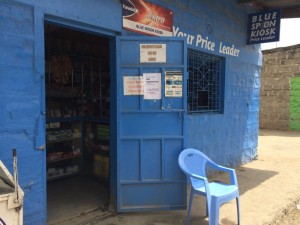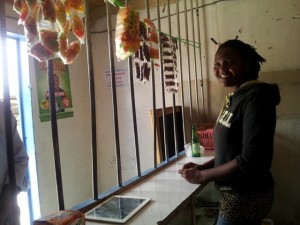October 19, 2015
IT for Agribusiness is Booming in Kenya
Kenya is sometimes called the Silicon Valley (or “Silicon Savannah”) of East Africa. Kenya’s technology services sector has grown from $16m in 2002 to over $450 million today and has attracted many tech start-ups. Google, Intel, Nokia all have sites in Nairobi, IBM Innovation Centre is IBM’s first research lab in Africa. The global taxi-hailing mega-app Uber’s team worked at the next table from Twiga Foods, a fresh produce ecommerce start-up, during a recent Promar Consulting visit to one of Nairobi’s entrepreneur co-working offices.
There is a booming and vibrant app industry in Kenya, many of which are directed at farmers and small businesses.
Many of the inefficiencies in Kenyan agribusiness related services such as logistics, warehousing and retail inventory are due to a lack of effective data collection, analysis, management and sharing. It is not surprising then that IT solutions and services are a growing part of agribusiness development in Kenya. The intersection of agriculture and IT is especially attractive to Kenyan young people, who see IT as offering exciting and modern opportunities to be an “agripreneurs”.
 Promar’s recent field research in Kenya, led by consultants Reiko Tominaga and Lucia Vancura, focused on identifying investment opportunities in the country’s food and agricultural sectors. The work revealed a variety of innovative applications of mobile apps for agribusiness, including Mgubu Choice that provides information and local availability of seeds for purchase and We Farm which uses crowd sourcing through SMS messages to answer farmer questions. iCow offers a wide range of services to small scale Kenyan farmers, such as tracking individual dairy cow health, diet and milking data, providing vaccination calendars for chickens and cows and alerting farmers on the locations of the nearest veterinarians.
Promar’s recent field research in Kenya, led by consultants Reiko Tominaga and Lucia Vancura, focused on identifying investment opportunities in the country’s food and agricultural sectors. The work revealed a variety of innovative applications of mobile apps for agribusiness, including Mgubu Choice that provides information and local availability of seeds for purchase and We Farm which uses crowd sourcing through SMS messages to answer farmer questions. iCow offers a wide range of services to small scale Kenyan farmers, such as tracking individual dairy cow health, diet and milking data, providing vaccination calendars for chickens and cows and alerting farmers on the locations of the nearest veterinarians.
 Another example was the Japan-founded social enterprise AfricaScan,which has established the Blue Spoon branded franchise model for neighborhood grocery kiosks. One pillar of the model is use by kiosk owners of an inventory management app on an iPad to track customer purchasing patterns and manage inventory orders. Kiosk owners felt that the efficiency of the Blue Spoon model had improved the ease of doing business.
Another example was the Japan-founded social enterprise AfricaScan,which has established the Blue Spoon branded franchise model for neighborhood grocery kiosks. One pillar of the model is use by kiosk owners of an inventory management app on an iPad to track customer purchasing patterns and manage inventory orders. Kiosk owners felt that the efficiency of the Blue Spoon model had improved the ease of doing business.
The wave of mobile apps complements other growing uses of IT in Kenyan agriculture, especially in greenhouse farming where technology can help regulate irrigation and temperature or track fertilizer usage. Kenya’s increasing numbers of “telephone farmers” can use these technologies to monitor their farms from their bases in Kenya’s urban areas, allowing Kenyan young professionals to both benefit from an urban life and take advantage of the rich opportunities in agribusiness. Promar expects IT to be a growing opportunity for investment in Kenyan agribusiness from mobile apps to support small scale farmers to technology services that improve food distribution and inventory control, refrigeration and agro processing.
Photo: 1) A Blue Spoon kiosk in Naivasha, 2) Kenya and the owner with her iPad for inventory management
Source: Promar Consulting
